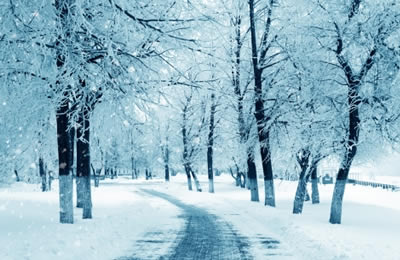News
Snow safety tips for businesses
21 January 2015
 The UK is in the middle of a spell of severe cold weather, with possibly more snow on the way. It’s a good time to consider the risks presented by severe weather, your duties as an employer, and how you can help avoid injury to your staff, customers and other visitors.
The UK is in the middle of a spell of severe cold weather, with possibly more snow on the way. It’s a good time to consider the risks presented by severe weather, your duties as an employer, and how you can help avoid injury to your staff, customers and other visitors.
In no particular order, below are some of the implications of severe cold weather for businesses:
- Staff travelling by car – If your staff travel on business by car – be that in a company car or their own – in severe weather you should give consideration to whether or not business trips are absolutely essential. Even for staff who drive only to and from work in their own car, it’s important to consider their travel arrangements too, and ensure that they are able to get home safely if weather worsens.
- Keep paths, steps and car parks clear – Slips, trips and falls affecting your customers, staff or other visitors to your premises could lead to costly court action. You can never guarantee complete safety, but it’s important to do all you can to safeguard your premises. Preferably, you should use grit or salt on paths and frequently used areas before snow falls.
- Burst pipes – In winter, one of the biggest causes of insurance claims can be burst pipes. A claim for a burst pipe could cause serious disruption to your business, and yet some simple steps could help reduce the risks significantly. If severe cold weather is forecast, consider whether you need to heat your premises for longer, especially overnight when temperatures are lowest.
- Consider a “bad weather policy” for staff – When severe weather hits, many companies find that some staff make it in to work, while others don’t. There is always the risk that some staff will make the most of the excuse of the weather and not try too hard to get in, whereas others will do all they can to get in! How do you ensure you treat all staff fairly and consistently? One way is to ensure that you have a bad weather policy written in to your HR processes, which could form part of your Employee Handbook. If you have one in place already, it may be beneficial to remind all staff of the policy as soon as snow is forecast.
- Family emergencies – Your staff are entitled to leave work to attend to a family emergency (albeit you are not legally obliged to pay them). Closure of their children’s school due to snow, is classed as a family emergency and would entitle them to leave. Again, this is an area of Employment Law that you should look to address by having a clear written policy for it in your Employee Handbook.
- Make use of Remote Working – If your staff can’t make it to their normal place of work, do you have other premises that are more accessible? Failing that, is it possible that any of your staff could work from home? Allowing staff to work from home during severe weather can create a lot of goodwill. Provided that they have any technology they may need in order to carry out the work, and they have clearly agreed with you what they will complete, the arrangement can work well for everyone.
- Office closures – If the weather should worsen, you may even need to consider closing completely. If this should happen, consider how you will communicate this to customers – nowadays it is very easy to arrange a recorded message, or even to forward all phone calls to an external phone or mobile. If you communicate with customers through email or social media, you could also issue a notice about the closure, as well as a notification on your website.
By having the right processes in place ahead of time, you can help mitigate the problems caused by heavy snow and ice, and ensure that your business is ready to get straight back to normal once the milder weather conditions arrive.




